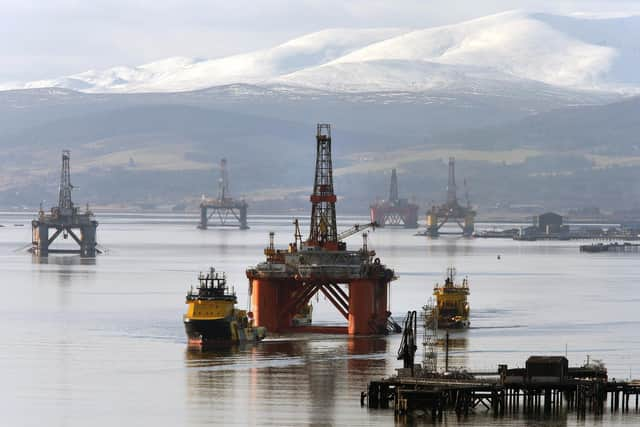Cambo go-ahead and unlimited oil extraction has ‘no consideration for climate crisis’, expert tells MSPs
Erik Dalhuijsen, an oil industry expert and climate change activist, told MSPs in the Scottish Parliament on Tuesday that he believed the focus on carbon capture was being used to justify the growth of natural gas, despite the need for a reduction in fossil fuel usage and net zero targets.
His comments came after Monica Lennon, the Scottish Labour MSP, asked experts at Holyrood’s net zero committee how they would respond to concerns around the fact many supporters of carbon capture and storage (CCS) also back new oil and gas fields.


Advertisement
Hide AdAdvertisement
Hide AdShe said many activists and members of the public view large oil companies’ support of CCS with suspicion and could delay the just transition away from fossil fuels.
Mr Dalhuijsen said carbon capture posed a “huge risk” and that he was “convinced the whole CCS push is driven by natural gas growth”, due to large oil companies having strategies for gas growth.
He said: “The only reason is that if you push blue hydrogen, you can sell more gas. If you push CCS and you power the CCS with natural gas, then you can produce more gas.
"If you power CCS with renewables, then you take away from the renewables budget, which is necessary to remove fossil fuels, so there is a huge risk.
"CCS must be removed from the oil industry. Even though the knowledge is in the people who are working in the oil industry, the CCS knowledge is not specific to any oil company. I think there needs to be a very clear separation between that.”
Mr Dalhuijsen said the strategy of maximising economic recovery of oil and gas (MER), and the support for the controversial Cambo oil field, had no “consideration for the climate crisis”.
The project at Cambo was paused last week after Shell, one of the key backers, pulled out of the scheme.
However, Professor Stuart Haszeldine, professor of CCS at the University of Edinburgh, said the oil industry had the knowledge and the technology to make CCS work, but said a new environmental test was needed for new oil and gas fields.
Advertisement
Hide AdAdvertisement
Hide AdHe said: “Can CCS be used to justify new oil fields? I think we have to be very careful here.”
He added: "If the North Sea declines rapidly, by which I mean five to ten years, it is not clear that those jobs in a just transition will have renewable jobs waiting for those people. So we have to measure the pace of decline of the North Sea and try and mix that with the rate of increase of renewables, which of course could be accelerated.”
Prof Haszeldine that the Scottish cluster of carbon capture and storage, linked to the Acorn project off the coast of North East Scotland and Ineos’ plant in Grangemouth, had been asked to “run on the spot” by the UK Government.
Michael Matheson, the net zero Cabinet secretary, has demanded the UK Government reverse its decision and instead fully fund the Scottish cluster.
A message from the Editor:
Thank you for reading this article. We're more reliant on your support than ever as the shift in consumer habits brought about by coronavirus impacts our advertisers.
If you haven't already, please consider supporting our trusted, fact-checked journalism by taking out a digital subscription.
Comments
Want to join the conversation? Please or to comment on this article.

